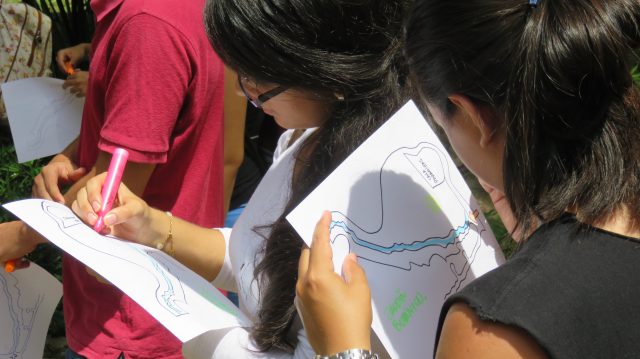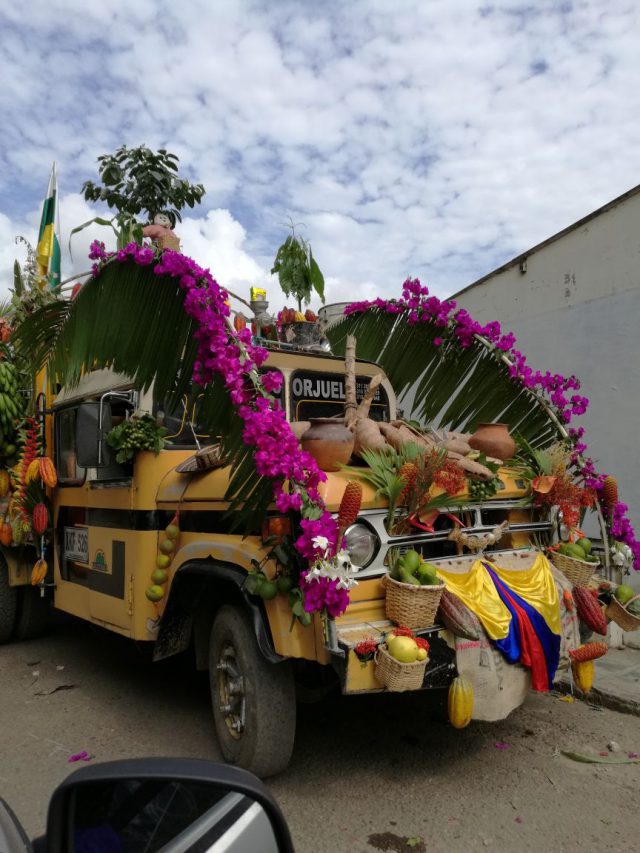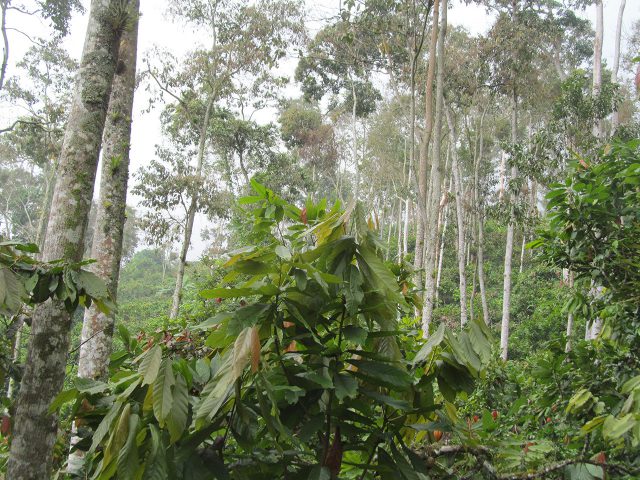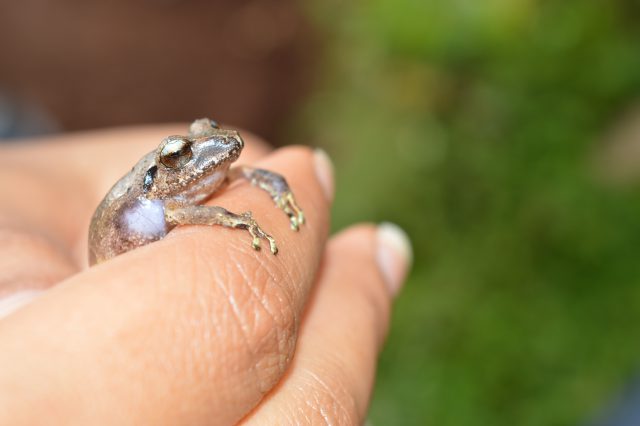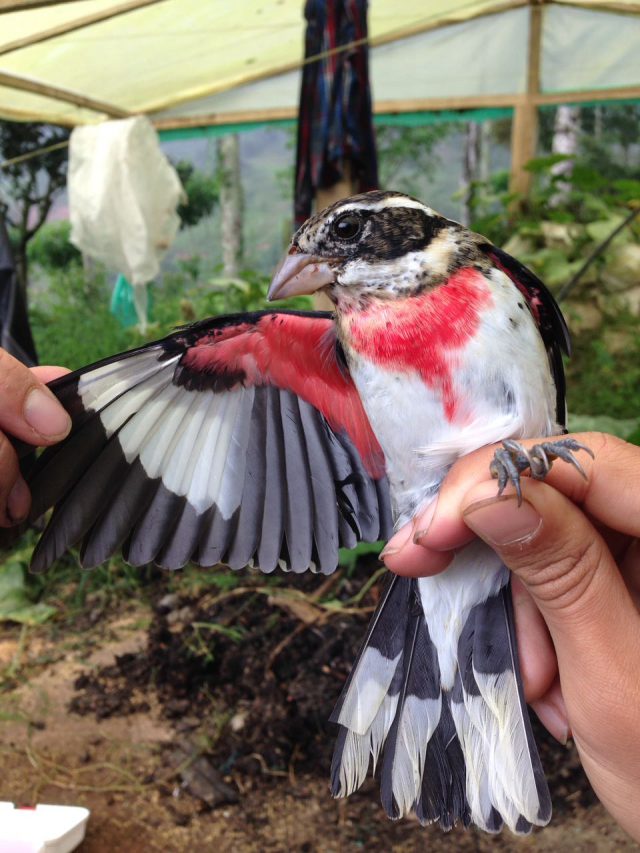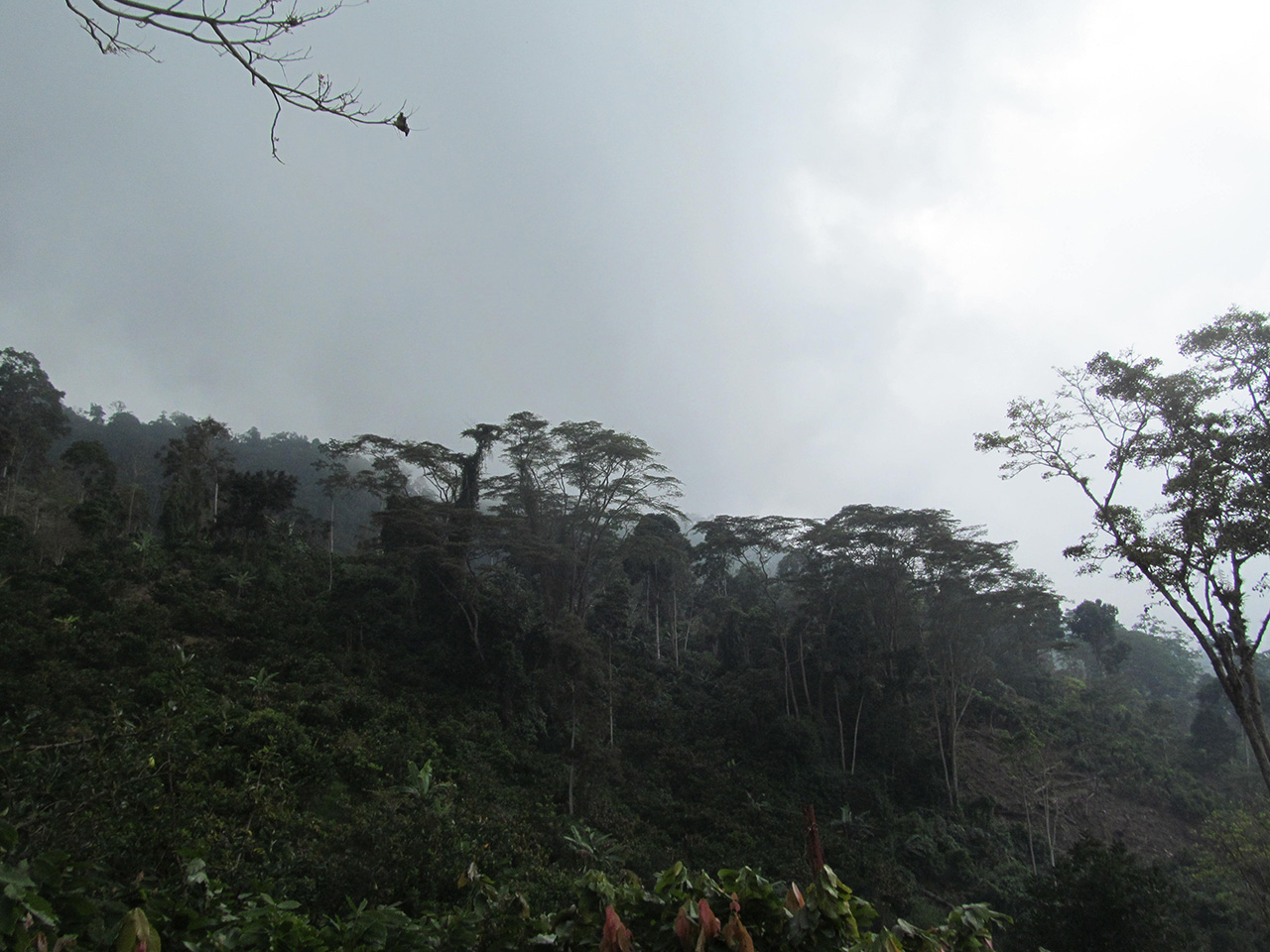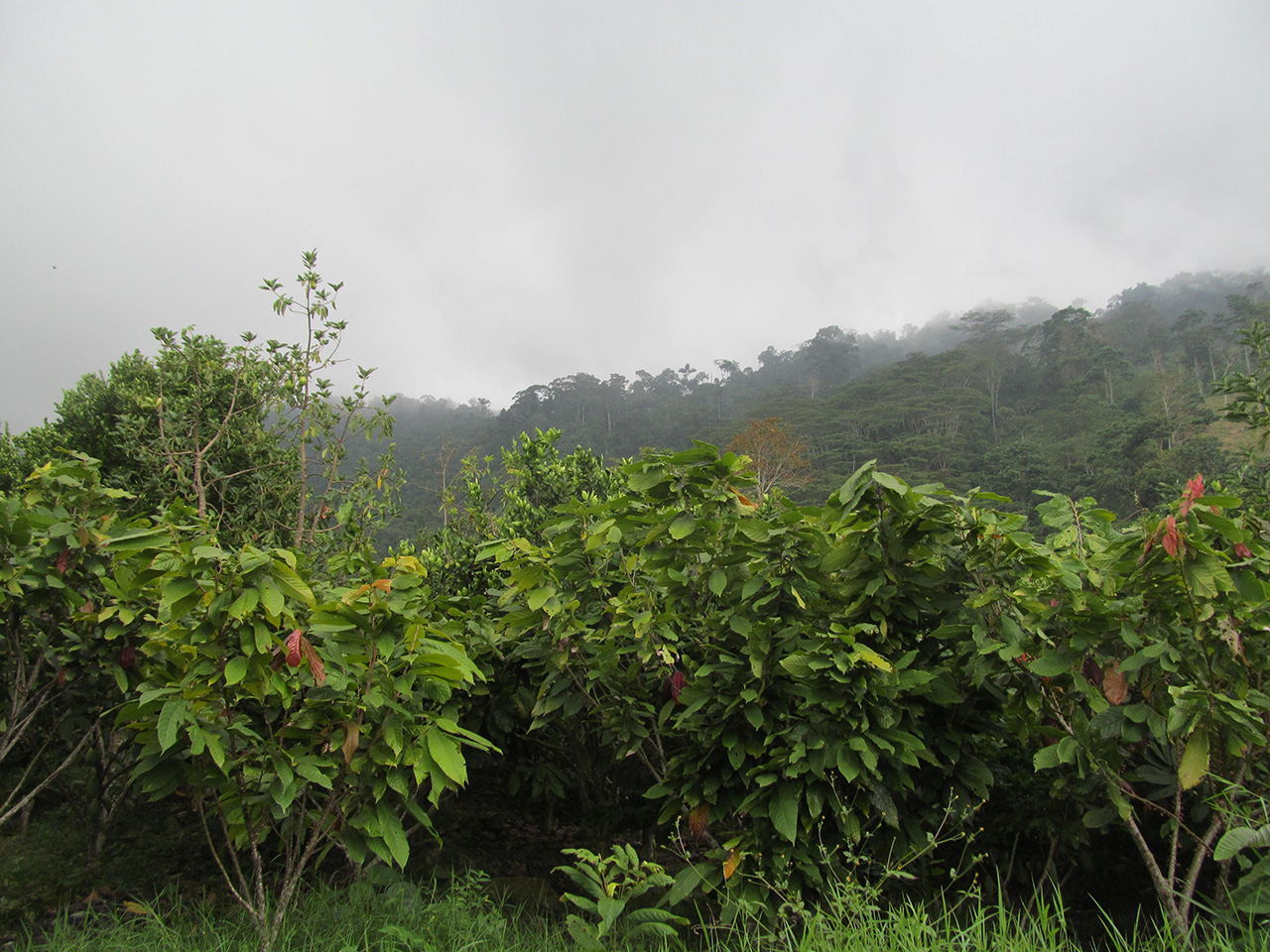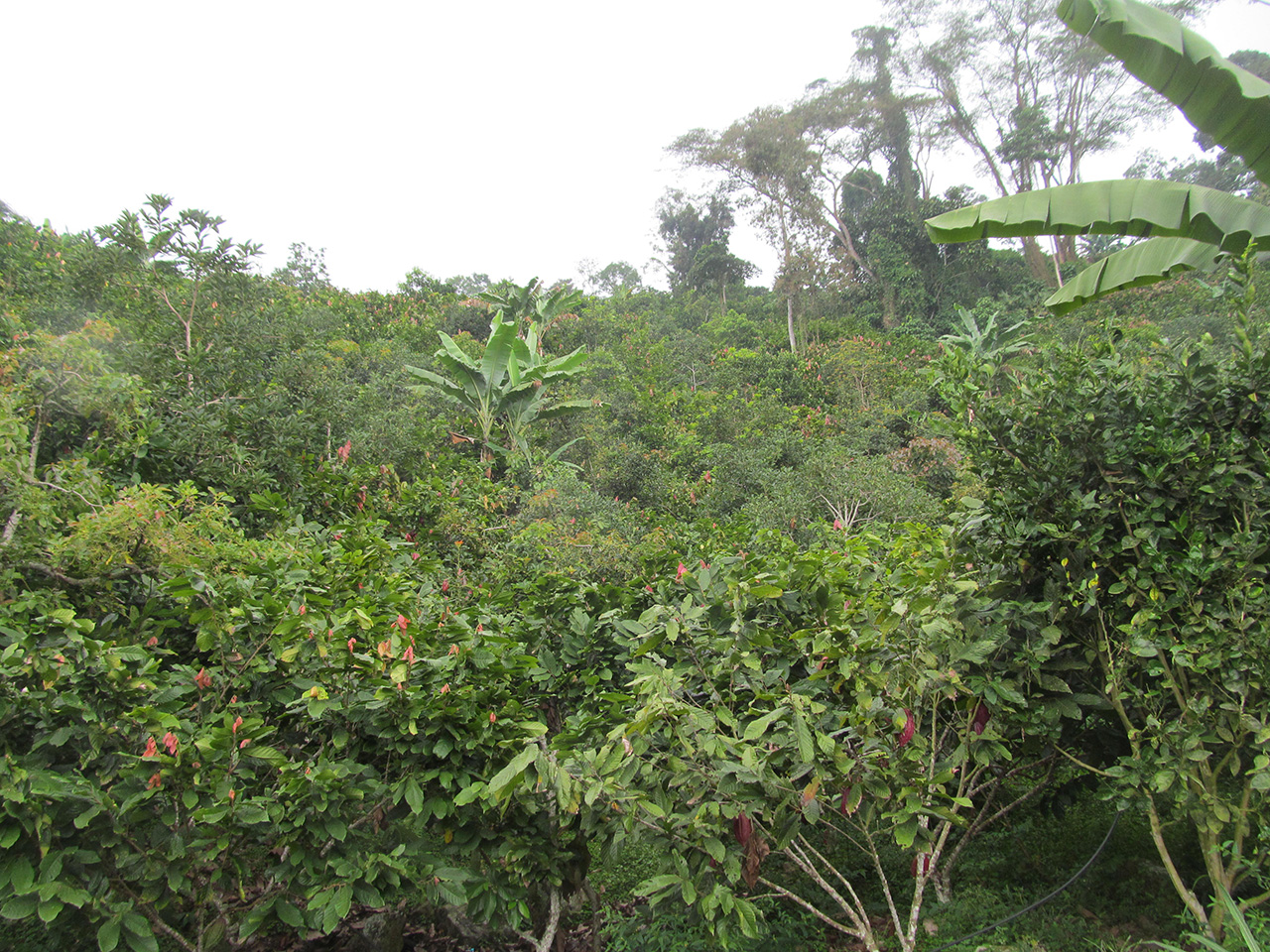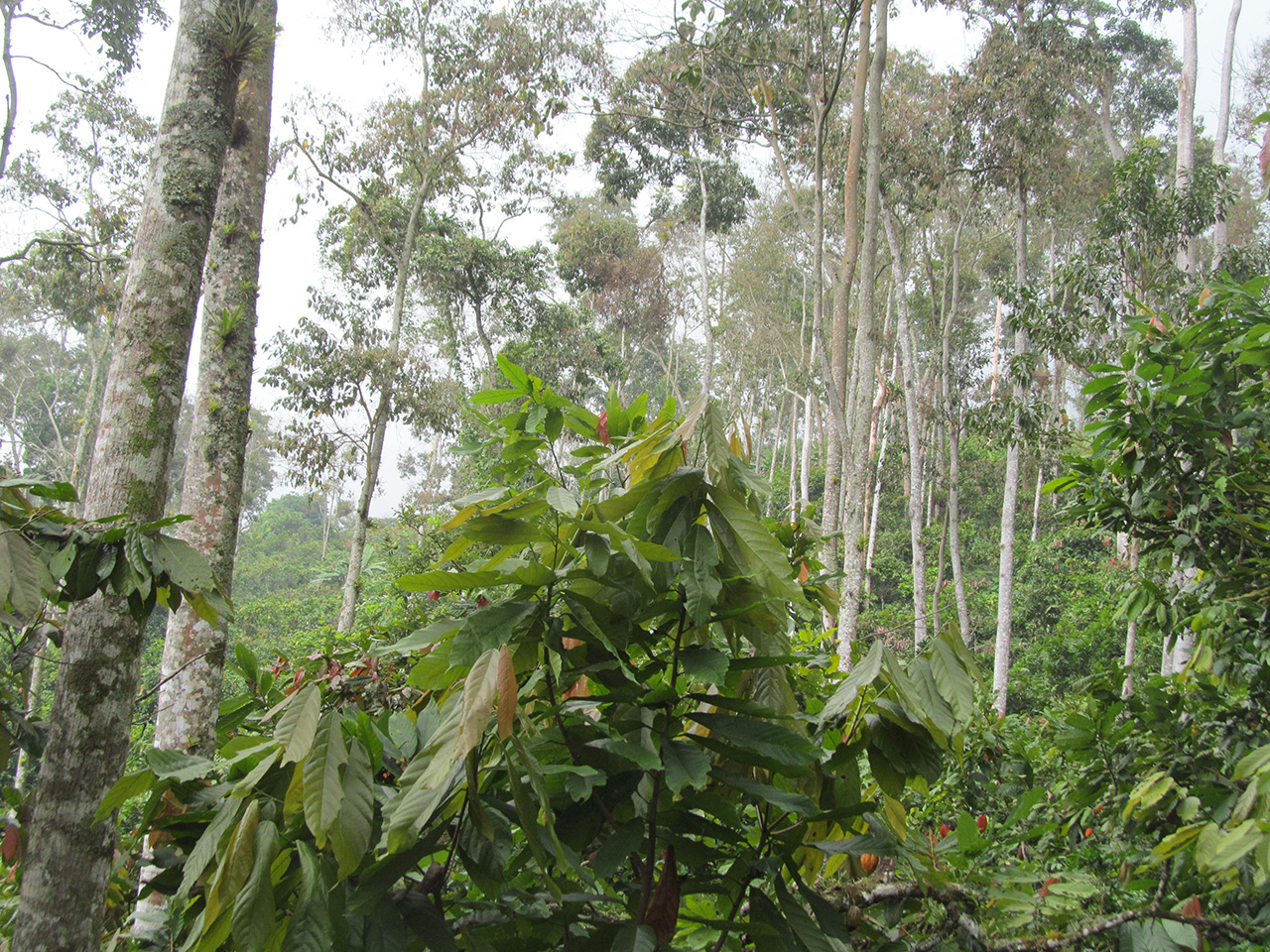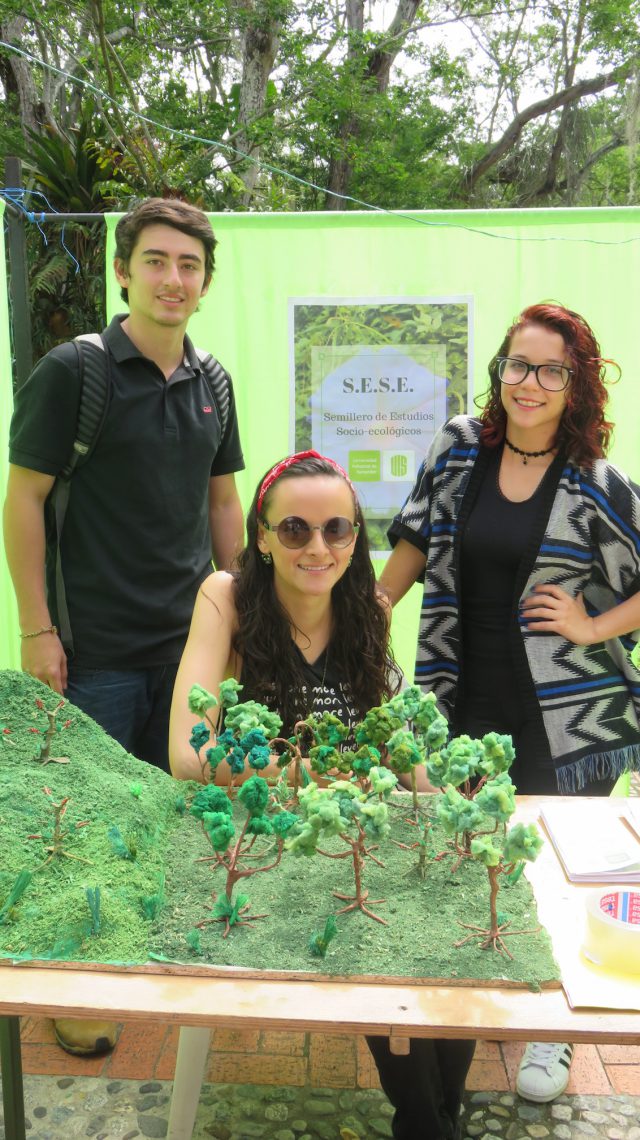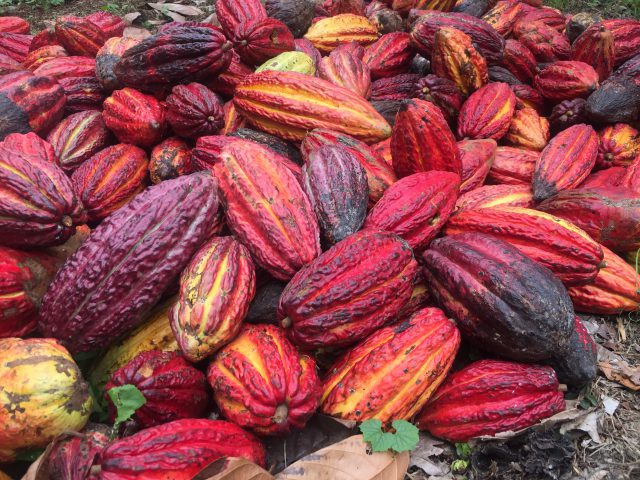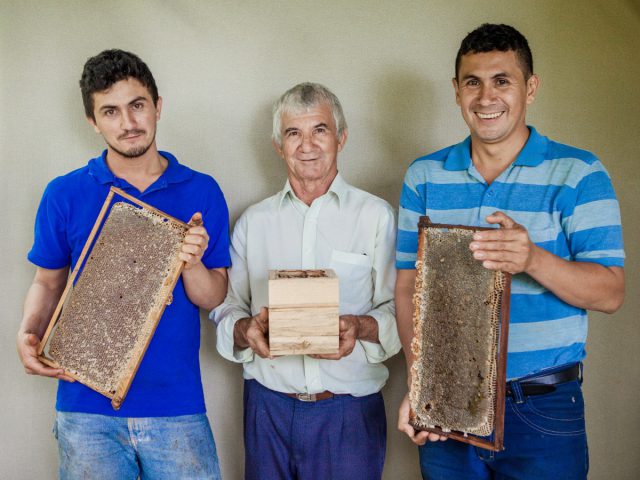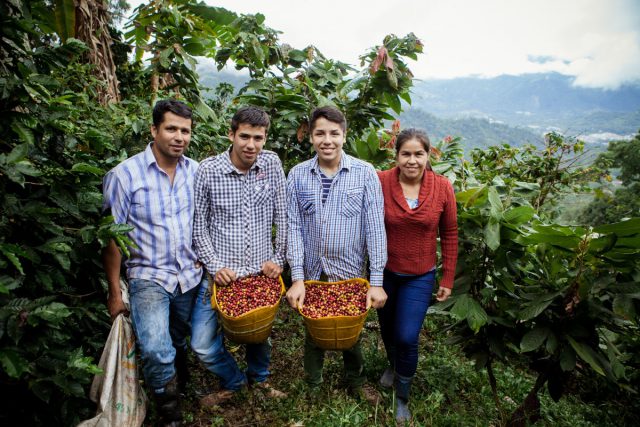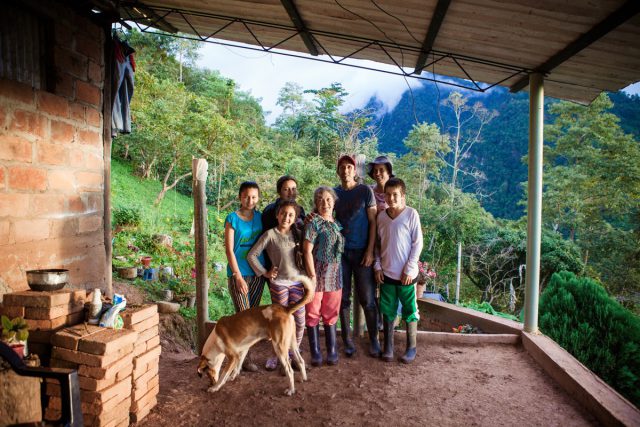Reconciling biodiversity conservation and agricultural production in agroforestry cultivation systems in the Colombian Andes: a model for Colombia’s post conflict era [San Vicente de Chucurí, Colombia]
Organization : Universidad Industrial de Santander (UIS)
- Project Period
- : June 2016 - March 2019
- Project Site
- : 150 ha
- Grant Amount
- : US$89,700
- Co-financing
- : US$242,075
Executive Summary :
In the Colombian Andes diversified agroforestry systems with cacao and coffee exist within a matrix of cattle pastures and well preserved forest fragments. These production landscapes harbor a biodiverse fauna and flora and provide essential ecosystem services, but are threatened by agricultural intensification, post-conflict rural development and global market pressures. The proposed project will be carried out in the buffer zone of the Yariguíes National Park, which is a nationally important cacao and coffee production landscape and harbors a high level of biodiversity and endemism. The region has relatively recently been colonized and remained largely isolated due to the internal armed conflict. It is our objective to contribute to the conservation of these biodiverse production landscapes by (1) identifying existing management strategies reconciling biodiversity conservation and ecosystem service provisioning with agricultural production. To do so, we will assess biodiversity and ecosystem services across three different management strategies: (i) intensified cacao a/o coffee production without shade trees, (ii) designed agroforestry systems with planted shade trees, and (iii) close to natural polycultures. Biodiversity indicators will be assessed for plant, invertebrate and vertebrate groups and ecosystem services will include water provisioning, soil protection and pest control. (2) We aim for converting the autochthonous tacit knowledge about managing these diversified agroecosystems into explicit expert knowledge using a participatory approach. By this, we aim for empowering the local community to not only conserve their knowledge and meet future challenges, but also share it and inspire the emerging population of post-conflict farmers in Colombia.
Main threatened species according to IUCN Red List that may be influenced by the project :
- Ateles hybridus hybridus
- Aotus lemurinus
- Ranitomeya virolinensis
PROJECT UPDATE
- Grievance Mechanism UIS
- Free Prior and Informed Consent UIS
- UIS Highlights Report (October to December 2016)
- UIS Highlights Report (January to March 2017)
- UIS Highlights Report (April to June 2017)
- UIS Highlights Report (July to September 2017)
- UIS Highlights Report (October to December 2017)
- UIS Highlights Report (January to March 2018)
- UIS Highlights Report (April to June 2018)
- UIS Highlights Report (July to September 2018)
- UIS Highlights Report (October to December 2018)
- UIS Highlights Report (January to March 2019)
- Calendario Emergía 2018 [in Spanish]
- Mujer rural, manejo y conservación del paisaje socioecológico de Las Cruces, San Vicente [in Spanish]
- Historia de Una Taza de Chocolate [in Spanish]
- Historia de Una Taza de Cafe [in Spanish]
- Resiliencia Socioecologica de la Microcuenca Las Cruces [in Spanish]
- UIS Final Project Report
PHOTO LIBRARY

